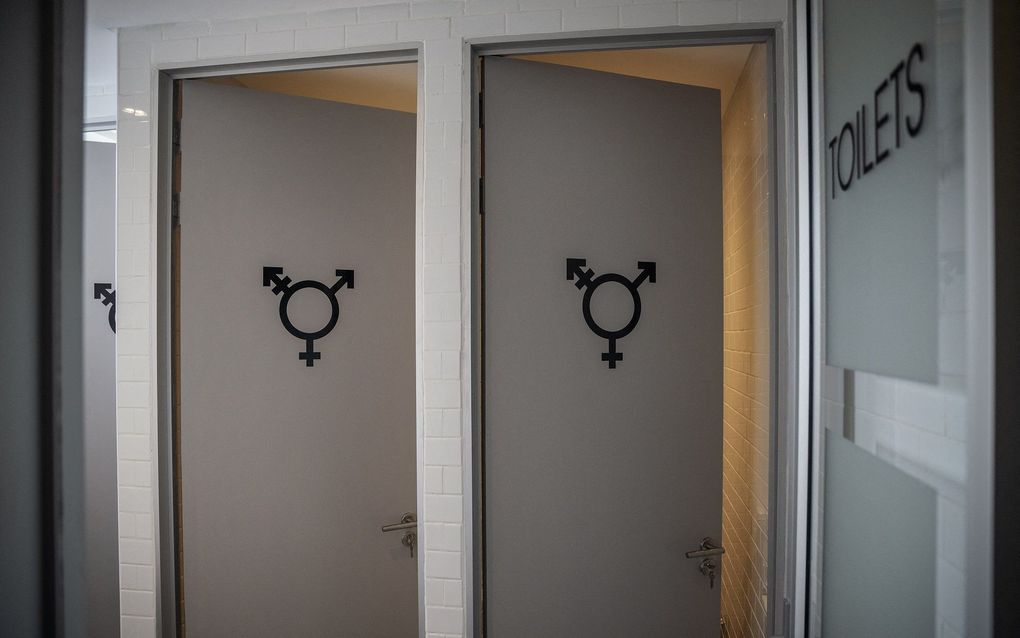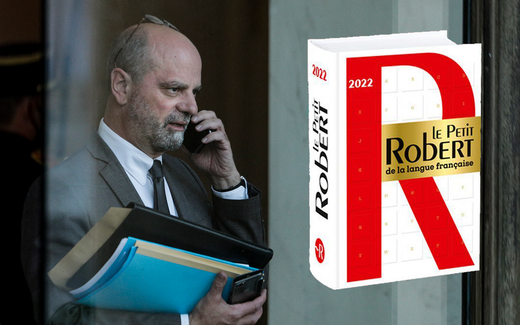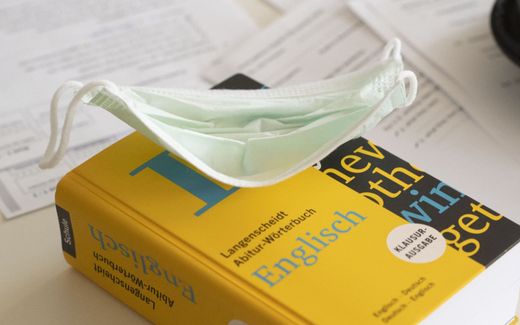The language war on gender has come to the French workplace

Gender neutral restrooms. Photo AFP, Michele Spatari
Western Europe
As more French employers have gender-neutral terms enshrined into their policies, a small, yet vocal minority of young employees, are rebelling. Some see the new changes as a time to leave their job or end the interview.
A 31-year-old startup director who goes by “Thomas” said that he was contacted by a recruiter who asked him about his preferred pronouns- he, she, or iel for an interview. The position’s title also mentioned the abbreviations, “M/F/X,” M-male, F-female, and X- for those who want to be “neutral.” In French, the use of the pronoun, “iel,” (a “contraction of “he” and “she”) is assigned to someone who does not want to identify with any gender, as reported in the article of Valeurs Actuelles.
About the moment he saw the pronouns, Thomas says: “I abandoned the recruitment process. This kind of request reflects the state of mind of the box which wants to surf the American “woke” wave of Gafam (acronym of Google, Apple, Facebook, Amazon, and Microsoft, editor’s note). I do not project myself at all in a box where everything is policed,” he said to Le Figaro.
Nothing new
For the company’s CFO, these ‘inclusive’ terms were nothing new, as they had become the new standard at a previous workplace. However, Thomas told the online publication that he did not want to “fall back into that kind of atmosphere” at his next position.
In another attempt at promoting “inclusivity”, a 32-year old woman who goes by the name of “Pauline” said that her supervisors told her to abandon “direct feminine and masculine pronouns,” and replace them with neutral forms in her communication position at a national school. After publishing her written material, she could barely recognize her own writing.
“This rigidity and these calls to order exasperate everyone. But people comply because they don't want problems,” she said in the Le Figaro article.
Inclusive in writing
In a top business school in France, the administration decided to incorporate more “inclusive” words in their writing. As reported in the article, the students viewed the new move as offensive and added: “Ugly and unfounded because it does not advance gender equality”. After facing significant backlash, the management stopped using the new terms.
According to a CGE-IPSOS-BCG survey, that was reported in Valeurs Actuelles, at least 76 per cent of young people want to have a job that reflects their values. While HR recruiters and schools may interpret this as providing as many pronouns as possible, some young adults still see the value in using only two- the masculine and feminine forms of their language.
Franck Neveu, a linguist and professor at La Sorbonne, considers these so-called, inclusive practices as, “a new criterion of discrimination in hiring”.
“This is to forget that the person being interviewed may not be concerned by this gender issue,” he said in the Valeurs Actuelles article.
Related Articles






